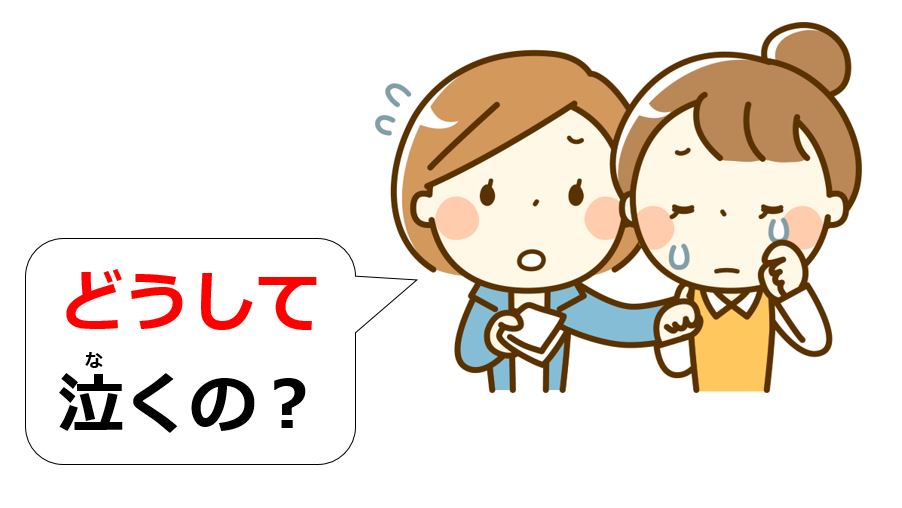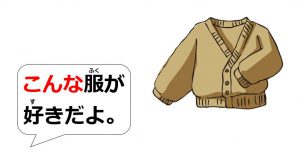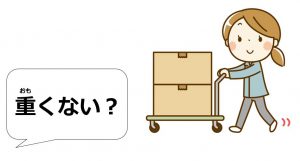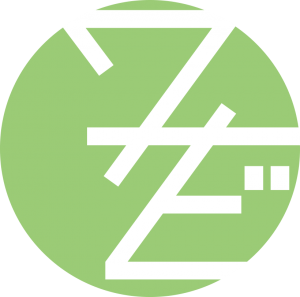In the last two lessons, you learned wh-questions with demonstratives: こそあど, e.g. どんな本を読みますか (What kind of book(s) do you read)? However, there are still other types of question words, which are not related to demonstratives. In this lesson, you will complete the topic: wh-question.
Five Japanese Wh-questions not related to Demonstratives
| Table of Contents どうして, なぜ, and なんで: Why いつ: When いくつ・いくら: How Old… / How Many… / How Much… どのくらい: How + Adjectives |
Regardless of whether questions words are related to demonstratives, the basic concepts are the same. By paying attention to the function of particles and omissions of subjects, you can make natural interrogative sentences with question words. Let’s check how it works.
どうして, なぜ, and なんで: Why
| どうして | [あなた は / が] | 日本語を | 勉強する(の / んですか)? |
| Adverb | [Topic/Subject] | Direct Object | Verb |
| Why will [you] study Japanese? | |||
The first question words are どうして, なぜ, and なんで. All of them are counterparts to “why” in English. However, the formality is different as shown below. You need to choose one of them depending on the situation.
Formal: なぜ
Neutral: どうして
Casual: なんで (only in speaking)
Since these question words are categorized into adverbs in Japanese grammar, it’s not necessarily the case that they are placed at the beginning. Note: when you ask reasons, it’s natural that you already have some contexts. That is to say, the question marker の is more suitable than か
| 日本になぜ引っ越す(の / んですか)? Why will [you] move to Japan? |
| どうして山を登る(の / んですか)? Why do [you] climb mountains? |
| 雲はなんで白い(の / んですか)? Why are clouds white? |
なんで VS. なにで
The question word: なんで comes from the combination of 何 and the particle で. One of the functions of the particle で is to express reasons (causation). That’s why なんで can be a counterpart to “why.” Let’s see the breakdown below. *Note: なんで is sometimes written in kanji.
| 風邪で学校を(休む / 休みます)。 [I will] be absent from school due to [I have a] cold. |
| 何で学校を休む(の / んですか)? Why will [you] be absent from school? |
As you learned, the question word 何 can be replaced with nouns. In the example, 風邪, which is the reason shown by the particle で, has been replaced. Thus, the literal meaning is “what reason,” but you can consider it as “why” in English. The point here is that since the particle で can express means and materials too, you can ask it by using the same form.
| タクシーで学校に(行く / 行きます)。 [I will] go to school by taxi. |
| 何で学校に行く(の / んですか)? By what [means] will [you] go to school? |
| 野菜でジュースを(作る / 作ります)。 [I will] make juice by [using] vegetables. |
| 何でジュースを作る(の / んですか)? By using what [materials] will [you] make juice? |
That’s a little confusing, isn’t it? For example, the last sentence: 何でジュースを作るの? may be treated as “Why do you make juice?” and “By using what materials will you make juice?” Therefore, Japanese people distinguish them by using different pronunciations. That’s なんで vs. なにで.
なんで: Reasons (causation)
なにで: Means or Materials
You learned that 何 is always pronounced as なん if the letter after 何 is part of the Ta line (た ち つ て と), Da line (だ ぢ づ で ど), or Na line (な に ぬ ね の). Here is an exception.
いつ: When
| 誕生日は | いつ | (ですか)? |
| Topic / Subject | Complement | Question Marker |
| When is [your] birthday? | ||
いつ is the question word for time and a counterpart to “when” in English. This is categorized into adverbial nouns in terms of grammar. Therefore, いつ can work as a subject, a complement and an adverb.
| いつが結婚式(なの / なんですか)? When is [your] wedding? |
| 次の祝日はいつ(ですか)? When is the next national holiday? |
| いつ日本に来る(の / んですか)? When will [you] come to Japan? |
The particle から and まで can be used with いつ together like “from when” and “until when.”
| いつからが冬(なの / なんですか)? From when will the winter [start]? |
| いつまで冬が続く(の / んですか)? Until when will the winter continue? |
If you’d like to ask approximate time, you need to attach ごろ to いつ. Some young people use ぐらい instead of ごろ nowadays, though this is not grammatically correct. Please keep in mind that ぐらい should be used for amount.
| いつごろが結婚式(なの / なんですか)? About when is [your] wedding? |
| いつごろ日本に来る(の / んですか)? About when will [you] come to Japan? |
| いつごろまで冬が続く(の / んですか)? About until when will the winter continue? |
Specific Time
As you learned, 何 can be replaced with nouns. The function is applicable for time as well. By utilizing that, you can ask a specific question like “what time is it now?”
| 今は5時(だ / です)。 It’s five o’clock now. |
| 今は何時(ですか)? What time is it now? |
| 10時がいい(です)。 Ten o’clock is good. |
| 何時がいい(の / んですか)? What time is good [for you]? |
In this usage: time + counter, 何 is always pronounced as なん. Then, when time expressions work as supplementary information, you have to attach the particle に.
| 5時に(起きる / 起きます)。 [I will] get up at 5:00am. |
| 何時に起きる(の / んですか)? What time will [you] get up? |
| 11時ごろに(寝る / 寝ます)。 [I will] go to bed around 11:00pm. |
| 何時ごろに寝る(の / んですか)? Around what time will [you] go to bed? |
You can also use other time counters such as 何年, 何月, 何日, 何分, and 何秒.
[adsense]
いくつ・いくら: How Old… / How Many… / How Much…
| [あなたは] | (お)いくつ | (ですか)? |
| [Topic / Subject] | Adverb | Question Marker |
| How old are [you]? | ||
| [それは] | (お)いくら | (ですか)? |
| [Topic / Subject] | Adverb | Question Marker |
| How much is [that]? | ||
いくつ and いくら are the set phrases for age and price. If you attach お to them, you can ask questions in a more polite way.
| 弟は(お)いくつ(なの / なんですか)? How old is [your] younger brother? |
| お母さんは(お)いくつぐらい(ですか)? About how old is [your] mother? |
| そのタバコは(お)いくら(ですか)? How much is that tobacco? |
| (お)いくらぐらいかかる(の / んですか)? About how much does [it] cost? |
いくつ and いくら are also the counterparts to “how many” and “how much” in English.
| パンは | (お)いくつ | 買う / 買いますか? |
| Topic / Subject | Adverb | Verb |
| How much bread will [you] buy? | ||
The origin of いくつ comes from the way of counting: つ-method. By using this, you can ask how many generic objects there are. Regarding particles for objects, you have to choose it depending on verbs. However, it is also common to use objects as a topic like the above example.
| アイスクリームはいくつ(食べる / 食べますか)? How much ice cream will [you] eat? |
| ケーキをいくつ作る(の / んですか)? How many pieces of cake will [you] make? |
| 氷がいくつ要る(の / んですか)? How much ice do [you] need? |
One point you need to know is that いくつ can be used for only generic objects (つ)and general goods (個). When you ask a number of things which require specific counters, you need to use the sentence pattern: “何 + counter.” 何 is a really versatile. You can even ask age and prices. Note: 何 + counter is always pronounced as なん.
| 傘は何本ぐらい(要る / 要りますか)? About how many umbrellas do [you] need? |
| 車を何台買う(の / んですか)? How many cars will [you] buy? |
| 何歳(ですか)? How old are [you]? |
| これは何円(ですか)? How much is this? |
どのくらい: How + Adjectives
| 日本は | どのくらい | 寒い(ですか)? |
| Topic / Subject | Adverbial Noun | Predicate |
| As for Japan, how cold is [it]? | ||
どのくらい is the question word to ask degree. The usage is similar to どう which is to seek a description. どのくらい is generally used with words which have degree and can be translated as “how adjective…” You may sometime see どのぐらい, どれくらい, and どれぐらい instead of どのくらい. They all are interchangeable.
| どのくらい眠い(の / んですか)? How sleepy are [you]? |
| どのくらい辛い(ですか)? How spicy is [it]? |
| 京都まではどのくらい遠い(ですか)? How far is it [to get] to Kyoto? |
| 車はどのくらい高い(の / んですか)? How expensive are cars? |
Here is another function of どのくらい. You can ask an approximate number. This has the same meaning as “何 + counter + くらい.”
| 本はどのぐらい読む(の / んですか)? About how many books do [you] read? |
| 本は何冊ぐらい読む(の / んですか)? About how many books do [you] read? |
| いつもどのくらい寝る(の / んですか)? About how long do [you] usually sleep? |
| いつも何時間ぐらい寝る(の / んですか)? About how many hours do [you] usually sleep? |
In this usage, かかる: to take (a resource, e.g. time or money) is often used. Be careful. When native speakers use this, subjects are often omitted.
| どのくらい [お金が](かかる / かかりますか)? How much does it cost? |
| どのくらい [時間が](かかる / かかりますか)? How long does it take? |
Summary
- There’s not a big difference between question words related or not related to demonstratives.
- Question words categorized into adverbs such as “なぜ” and “いくつ” cannot be subjects or complements.
- One of the function of the particle に is to express specific time.
Great Job! You’ve completed Japanese wh-questions. Now, you can compose both open questions and closed questions. Interrogative sentences are a basis in conversation. Thus, we recommend that you memorize all of the question words here. Next, you will learn negative questions with the response.





